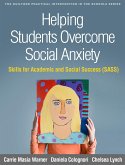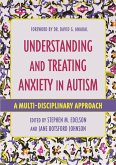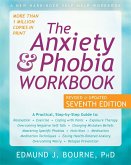It can be upsetting and incapacitating to suffer from anxiety problems. They could lead to challenges in social and familial interactions as well as a loss of educational and career possibilities. With the right care, including exposure therapy, attention training, and a variety of anxiety management strategies, you can recover and control your symptoms. The following techniques can be learned on your own (for instance, by reading books or enrolling in classes) or by speaking with a qualified expert. In this case, the proverb "knowledge is power" holds true; understanding worry is essential to healing. For instance, studying the physiology of the body's "flight-or-fight" response-the body's reaction to approaching danger-is part of education. In those with anxiety problems, relatively innocuous situations unnecessarily elicit this reaction. One key strategy for encouraging symptom control is education. To prevent hyperventilation, an anxious person may find it beneficial to learn how to breathe from their diaphragm instead than their chest. The secret is to let your stomach grow as you inhale. By resting one hand on your chest and the other on your lower belly, you can check that you are breathing properly. When you breathe correctly, your abdomen moves instead of your chest. When you're feeling nervous, it also helps to calm your breathing. Breathing in the abdomen can be difficult for some people. You can attempt a variety of alternative breathing techniques. Holding your breath for a few seconds is another option. This contributes to an increase in blood carbon dioxide levels. The "flight-or-fight" reaction, which overflows the body with adrenaline and other stress chemicals, is what causes the physical symptoms of anxiety. Exercise helps people relax and burn off stress chemicals. An additional useful strategy for managing anxiety is physical activity. To prevent boredom, try to engage in physical activity three or four times a week and mix up your routine. Anxiety disorder sufferers frequently have low self-esteem. In many respects, feeling unworthy can exacerbate anxiety. It can cause people to interact with others in a passive manner and cultivate a fear of receiving a severe judgment. The effect of the anxiety condition on your life may also be connected to low self-esteem.
Hinweis: Dieser Artikel kann nur an eine deutsche Lieferadresse ausgeliefert werden.
Hinweis: Dieser Artikel kann nur an eine deutsche Lieferadresse ausgeliefert werden.








